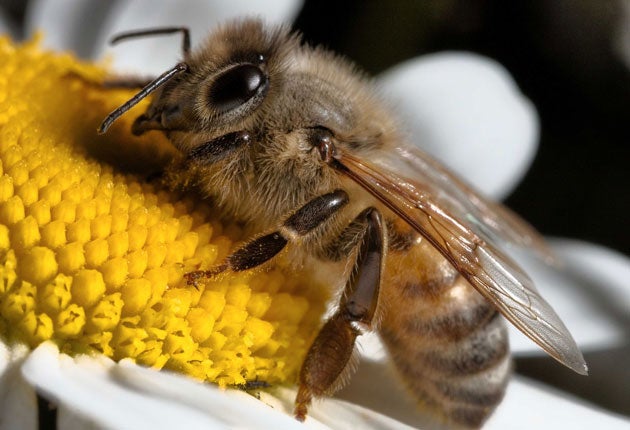'Invisible' colours irresistible to bees
Study discovers how iridescence attracts insects to flowers for pollination

Bees live in a paintbox world in which flowers take on different colours that are invisible to the human eye. Flower petals use the property, known as iridescence, to attract pollinators, scientists have discovered.
Iridescence is not due to a pigment but depends on surface structure, meaning tones change according to the angle the object is looked at. CDs are an example of a man-made iridescent item.
Scientist knew that insects, birds, fish and reptiles use iridescence for species recognition and mate selection. New research shows that plants use iridescence as well as colour pigment to make themselves attractive to bees.
British scientists identified iridescence in hibiscus and tulip flowers, and showed that bumblebees could separate iridescence and colour. The bees also use iridescence as a reward signal.
In experiments, bumblebees were taught to recognise that iridescent discs containing yellow, blue or violet pigments that offered a sugary reward. They learned to fly to those discs and avoid others with the same pigments which were not iridescent. The findings were reported in the journal Science. Most petal iridescence is at the ultraviolet end of the light spectrum which is visible to insects but not to humans.
Dr Beverley Glover, from Cambridge University, who led the study, said: "Our survey suggests iridescence may be very widespread. Flowers and their pollinators play an enormously important role in our lives, and it is intriguing to realise they are signalling to each other with flashing multicolours we can't see."
Scientists are increasingly interested in bees as fears rise that their numbers are in sharp decline. They are vital to agriculture, pollinating flowering crops we rely on for food. Last year, members of the European parliament declared that immediate action was needed to tackle the fall in the bee population. They adopted a resolution pressing the European Commission to invest in research to find out why the insects are declining and create recovery zones.
Albert Einstein would have approved. He said: "If the bee disappeared, man would only have four years' life left."
Subscribe to Independent Premium to bookmark this article
Want to bookmark your favourite articles and stories to read or reference later? Start your Independent Premium subscription today.

Join our commenting forum
Join thought-provoking conversations, follow other Independent readers and see their replies